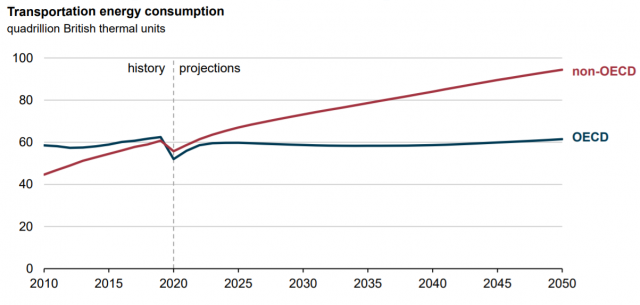Global Context for Promoting Cleaner Fuels and Vehicles Worldwide
Today, transportation demand is growing rapidly in developing countries. This, combined with rising personal vehicle ownership, is causing significant impacts on urban air quality and greenhouse gas emissions. For example, transport is potentially one of the biggest sources of carbon dioxide (CO2) and particulate matter pollution, especially in cities.
According to the World Health Organization (WHO), outdoor air pollution contributes annually to over 4.2 million premature deaths worldwide and it now ranks among the top global health risk burdens. In 2021, WHO released new global air quality guidelines and reported that 99% of the world’s population lives in places where the air quality levels exceed WHO limits.

Globally, the US Energy Information Administration (EIA) predicts in its International Energy Outlook 2021 (PDF) (85 pp, 1.5 M, About PDF) that refined petroleum and other liquid fuels will remain the dominant source of energy for the transportation sector through 2050. The EIA report predicts that energy demand in the transport sector will grow in developing countries (defined here as countries that are not a part of the Organization for Economic Cooperation and Development [OECD]), as the chart (right) displays, but remain largely the same for OECD countries.
